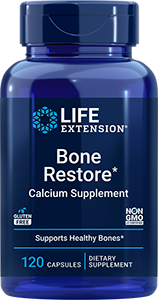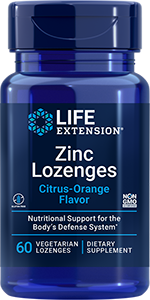Melatonin slows estrogen receptor-negative breast cancer growth
Friday, January 31, 2014. The journal PLoS One published an article online on January 9, 2014 in which researchers from São Paulo, Brazil and Henry Ford Hospital in Detroit report that melatonin, a hormone involved in the regulation of the body's sleep cycle, could help reduce the growth of estrogen receptor (ER)-negative breast cancer tumors.
In previous research, melatonin was found to have a greater antiproliferative effect on ER-positive than ER-negative breast cancer cells, which suggested that its effects might be mediated through the estrogen-response pathway. In the current research, administration of five concentrations of melatonin to triple negative human breast cancer cell cultures revealed that the highest concentration significantly decreased cell viability. Triple negative cancers, which comprise up to 20% of all breast cancers, have reduced receptors for estrogen, progesterone, and human epidermal growth factor receptor 2 (HER2), and are therefore unresponsive to commonly used treatments that target these receptors.
The team then tested melatonin's effects in thirteen mice that received implanted triple negative breast cancer cells. The animals were divided to receive melatonin or a control solution intraperitoneally each evening beginning the day of tumor implantation and continuing for five days per week for a total of three weeks, after which tumor growth was assessed. In comparison with the control mice, those that received melatonin had smaller tumors and less cell proliferation at the end of the treatment period, including one animal that experienced tumor regression. Mice that received melatonin also had reduced microvessel density in comparison with the controls. "Taken together, our results showed that melatonin inhibits tumor growth, cell proliferation and blocks tumor angiogenesis in breast cancer," the study's authors conclude.
"These early stage research results with the melatonin drug in a triple-negative breast cancer animal model achieved in our lab have not been seen anywhere else," announced coauthor Adarsh Shankar, who is a research assistant in the Department of Radiology at Henry Ford Hospital. "The key finding of the study is that we now know that we can trace this drug and its effect on tumor growth, which opens the door for more research on this topic."
|
 |
What's Hot
The January 21, 2013 issue of The Journal of Cell Biology published a report by Susana Gonzalo at Saint Louis University and her associates that indicates a possible benefit for vitamin D in triple-negative breast cancer, one of the more treatment resistant forms of the disease. Triple negative cancers have reduced receptors for estrogen, progesterone, and human epidermal growth factor receptor 2 (HER2), which makes them unresponsive to hormone-targeted therapies.
Dr Gonzalo's research discovered a molecular pathway in women with triple negative breast cancer and mutations in a tumor suppressor gene known as BRCA1. Loss of BRCA1 function impairs the cells' ability to repair DNA double-strand breaks and halt the proliferation of damaged cells.
It was recently discovered that the loss of another DNA repair factor known as 53BP1 enables the proliferation of BRCA1-deficient cells. Dr Gonzalo's team discovered that the protease cathepsin L degrades 53BP1, and that vitamin D restores it. "It's a new pathway that explains how breast cancer cells lose 53BP1," stated Dr Gonzalo, who is an assistant professor of biochemistry and molecular biology at Saint Louis University. She added, however, that the mechanism behind the increase in cancer cells' nuclear cathepsin L has not been defined.
In further research utilizing tissue samples from breast cancer patients with BRCA1 mutations or triple-negative breast cancer, the team found high levels of nuclear cathepsin L and decreased levels of 53BP1 and vitamin D receptor. These markers identify which populations might best benefit from cathepsin inhibitors or vitamin D therapy. |
 |
Latest Products |
 |
|
To overcome the impediments that preclude aging adults from achieving optimal calcium status, Life Extension offers a proprietary comprehensive mineral formula called Bone Restore which has been designed to support healthy bone density and strength. Bone Restore provides 700 milligrams of elemental calcium from three different forms, along with the critically important nutrients magnesium, boron, zinc, silicon, manganese and vitamin D3 needed for healthy bones.
In fact, the boron in this formula, called FruiteX B® OsteoBoron®, is a calcium/carbohydrate/boron complex, similar to what is found in fruits and vegetables and is more bioavailable than boron citrate. Scientific research has established the beneficial effects of boron on the strength of bones and joints.
One reason why aging people experience bone mineral density loss even though they are taking calcium supplements is that they may not be absorbing enough elemental calcium. Bone Restore provides calcium in capsule form to ensure that it breaks down fully in the digestive tract.
|
| |
 |
|
Zinc is a mineral that stimulates the activity of approximately 300 enzymes, which are substances that promote biochemical reactions in your body. These reactions are essential for the formation of superoxide dismutase, one of the body's most important free radical scavengers. Zinc also promotes immune function, taste sensitivity, protein and DNA synthesis, insulin production, reproductive organ development and sperm motility. Zinc also supports normal growth and development during pregnancy, childhood, and adolescence.
Maintaining adequate levels of zinc is equally important to aging adults. As people grow older, their immune function declines, partly due to the decreasing size and function of the thymus gland. Evidence suggests that zinc may help to maintain healthy function of the thymus gland in elderly people. Scientists have also found evidence that a zinc deficiency in elderly adults may contribute to impaired immune function with aging, or immunosenescence. These findings suggest that zinc plays a critical role in supporting healthy immune function with age.
Zinc Lozenges provide premium-grade zinc as gluconate and oxide in a pleasant citrus-orange naturally flavored tablet.
|
|
 |
Related Articles
|
BioPQQ® is a registered trademark of MGC (Japan). |











